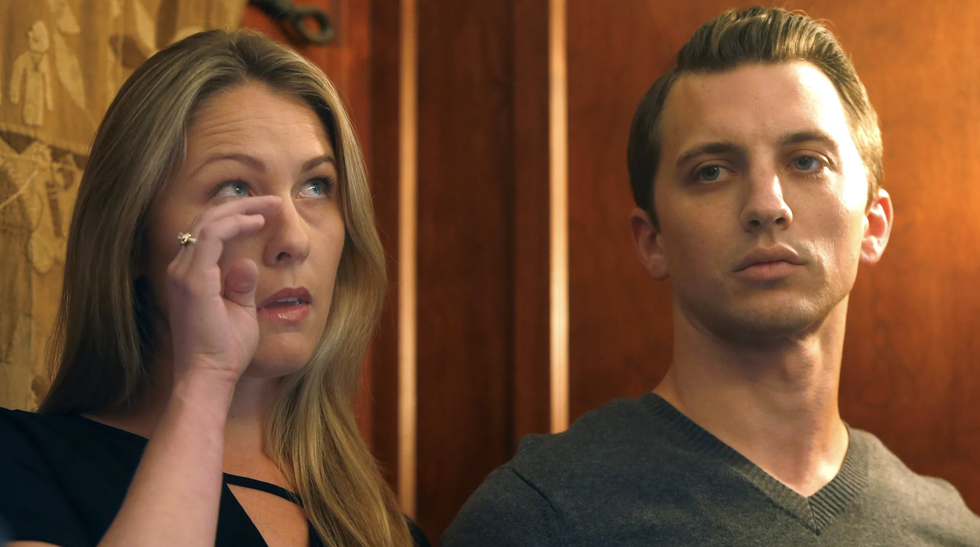In his Twitter profile picture, Patrick Phillips, MD, poses with a stethoscope. He tweets about how ivermectin could end the COVID-19 pandemic, encourages his over 36,800 followers to seek vaccine exemptions, and compares getting vaccinated to what Jewish people endured in Nazi Germany. Sound familiar? He wouldn’t be out of place in America’s Frontline Doctors, the group that’s garnered much attention for their similarly provocative stances — but the small maple-leaf flag by his name says otherwise.
Doctors and nurses casting doubt on COVID vaccination, masks, and other medical guidance aren’t limited to the U.S. — they’re quickly amassing their own followings in Canada. Foremost among these collectives is perhaps the Concerned Ontario Doctors and Canadian Frontline Nurses, who a number of contrarian clinicians have aligned themselves with.
“I have the perception that subset, the very right-leaning political fringe, is more sizable in the U.S. than it is in Canada, but we have it here too,” said David Juurlink, MD, PhD, a pharmacologist and internist in Toronto.
“To be quite honest, we’ve never really dealt with medical professionals until the pandemic,” said Elizabeth Simons, deputy director of the Canadian Anti-Hate Network. “Typically they will keep a distance from the hate angle, but they’re still standing shoulder to shoulder with hate-promoting groups and individuals.”
“It’s a growing problem for sure, it’s getting worse” with the introduction of proof of vaccine requirements for various events and businesses, she added.
Provincial professional medical regulators are starting to respond formally in an effort to combat misinformation spread by physicians, whose honorary MDs lend them and their associated fringe groups a veneer of credibility.
“When it comes to misinformation being spread by healthcare professionals, obviously it leads to bigger consequences,” said Krishana Sankar, PhD, of ScienceUpFirst, an organization that works to combat misinformation in Canada and is partly funded by the Canadian Association of Science Centres. “That’s because these are the trusted voices that we usually tell people to get their information from, to follow their guidance.”
According to reports this week, the College of Physicians and Surgeons of Alberta (CPSA) confirmed that it had spoken directly to seven doctors after receiving complaints that they had been spreading misinformation about COVID-19 online. The Canadian Press reported that the regulatory body had also spoken with physicians who gave vaccine exemption letters to patients without clinical evidence.
“Spreading misinformation does not align with a physician’s professional responsibility to their patients, and CPSA takes this very seriously. While we are unable to speak to individual cases, CPSA has a responsibility to Albertans to investigate regulated members who are sharing inaccurate and potentially harmful information,” the group said in a statement.
Alberta has the highest number of past-week COVID cases in Canada, according to their government website, and one of the highest rates of infection.
Two other professional regulatory groups, the College of Physicians and Surgeons of Ontario (CPSO) and the College of Physicians and Surgeons of British Columbia (CPSBC) did not respond to requests for comment.
Concerned Ontario Doctors, perhaps the Canadian equivalent to America’s Frontline Doctors, have amassed over 23,400 followers on Twitter; the group is led by Kulvinder Kaur Gill, MD, who has over 117,600 followers on the platform. Phillips also appeared in one of their videos, entitled “Medical Censorship and the Harms of Lockdowns.”
Gill has been disciplined by the CPSO. Their records show that she had a “caution-in-person” in front of a College panel following an investigation of her practice and shows three separate “cautions.” Her tweets from June and August 2020 alleged that lockdowns were harmful, testing and tracing were ineffective, and vaccines weren’t necessary.
The medical community has criticized Gill in the past for promoting the use of hydroxychloroquine, which has been shown to be ineffective for the treatment of COVID-19.
Gill has also retweeted pro-hydroxychloroquine sentiments from Simone Gold, MD, JD, the founder of America’s Frontline Doctors, CBC News reported.
In May, the CPSBC disciplined a family practice doctor, Stephen Malthouse, MD, according to CBC News. Malthouse sued the regulatory body after he received a letter from them stating he had been the subject of complaints from other doctors and would be investigated and prevented from speaking about issues related to COVID-19.
As for Canadian Frontline Nurses, they gained a degree of notoriety for their role in organizing protests outside Canadian hospitals for what they called “medical freedom” and “informed consent,” i.e., their position against vaccines and immunization records. But Simons said the group is less expansive than they appear. “There are, like, two nurses that are actually involved in that,” she said. “They often present themselves as being this massive number of people, but the reality is that it’s quite a small fringe group.”
The group has also retweeted Gold’s tweets. One expert said he wasn’t surprised by the overlap between the far-right groups. “The information that is typically trending or top on social media platforms comes primarily from the United States,” said Aengus Bridgman, a PhD candidate in political science at McGill University in Montreal, who leads the Canadian Election Misinformation Project there. “A lot of the conspiratorial thinking — fake cures like hydroxychloroquine, ivermectin — has flown north. We are very exposed in Canada to that.”
Simons said that medical professionals peddling in misinformation plays a part in real-world consequences of COVID conspiracy thinking. “They’re held to such a standard. And they have such a responsibility to what’s happening.”
Juurlink said he’s exhausted by fielding misinformation and debunking what patients have read or heard. “Some of those doctors have very, very sizable followings, they’ve got big megaphones and people listen to them,” he noted. But he thinks that people inclined to believe medical professionals who align themselves with “Frontline”-like groups would have already harbored those views in the first place.
“They’re kooks, they’re outliers, they do not represent the consensus medical opinions,” he added. “But they’ve got large followings and the reason they’ve got large followings is because people who share their beliefs of a political nature typically follow them.”
![author['full_name']](data:image/svg+xml;base64,PHN2ZyB4bWxucz0iaHR0cDovL3d3dy53My5vcmcvMjAwMC9zdmciIHdpZHRoPSIxODgiIGhlaWdodD0iMTg4IiB2aWV3Qm94PSIwIDAgMTg4IDE4OCI+PHJlY3Qgd2lkdGg9IjEwMCUiIGhlaWdodD0iMTAwJSIgc3R5bGU9ImZpbGw6I2NmZDRkYjtmaWxsLW9wYWNpdHk6IDAuMTsiLz48L3N2Zz4=)
Sophie Putka is an enterprise and investigative writer for MedPage Today. Her work has appeared in the Wall Street Journal, Discover, Business Insider, Inverse, Cannabis Wire, and more. She joined MedPage Today in August of 2021. Follow
Note: This article have been indexed to our site. We do not claim ownership or copyright of any of the content above. To see the article at original source Click Here



![author['full_name']](https://clf1.medpagetoday.com/media/images/author/Putka_Resize_96.jpg)









